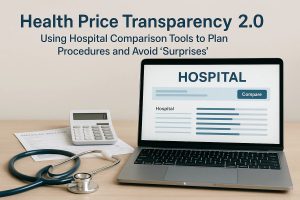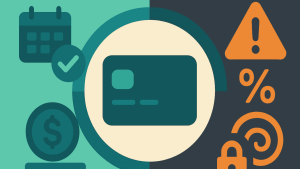Are you pondering over the cash flow for your enterprise this year? For many entrepreneurs, cash flow is a constant concern. Managing payments and receivables effectively is crucial for business success. Luckily, there are numerous tools to help business owners control their payments and expenses.
According to Kellé Hamby, Business Credit Card Product Manager at Regions Bank, small business owners have multiple payment options, from ACH and wire transfers to lines of credit and small business credit cards. This article explores the various facets of small business credit cards, from the unique benefits to the flexibility they provide.
Understanding the Benefits of Business Credit Cards
Small business credit cards offer several advantages that can significantly impact daily operations and cash flow management. One of the primary benefits is improved cash flow. Unlike paying with a check or cash, a business credit card allows you more time to pay off the credit, giving you a few extra days to collect outstanding receivables.
This flexibility can be crucial for managing day-to-day expenses efficiently. According to Hamby, a business credit card is a practical tool for improving cash flow management for small business owners.
Another significant benefit is enhanced protection. When you use a small business credit card for everyday expenses, you enjoy fraud protection that is not available with check or cash payments. Additionally, separating business expenses from personal ones becomes easier, reducing the risk of financial mishaps.
This separation is harder to achieve if personal credit cards are used for business transactions, making business credit cards indispensable for maintaining financial clarity.
Control Over Employee Expenses
One popular reason for obtaining a business credit card is the control it offers over employee expenses. With business credit cards, employees can handle travel, entertainment, and other expenses without the hassle of using personal cards, collecting receipts, and waiting for reimbursements.
This system not only benefits employees but also provides the business owner with greater transparency and control over spending. David Smitherman, Retail Products and Payments Product Manager at Regions Bank, highlights the benefits for the back office as well, such as avoiding the risks associated with managing petty cash.
Small business credit cards allow owners to set spending limits and restrict purchase types. Through tools like Merchant Category Code (MCC) blocking, business owners can prevent unauthorized purchases and control expenditures effectively.
Whether it’s placing a cap on spending or limiting the types of purchases, a business credit card offers robust controls that benefit both the employee and the employer. Immediate transparency of expenses further enables quick action against potential fraud or misuse.
Boosting Efficiency for Smarter Decisions
Employee purchase data from business credit cards can provide invaluable insights for better decision-making. Collaborating with a banking partner can help business owners analyze cash flow and expenditures effectively.
For instance, identifying significant spending with a specific vendor could lead to negotiations for better pricing. Understanding spending patterns enables companies to optimize costs and make informed financial decisions. Small business credit cards, therefore, not only streamline expense management but also contribute to strategic planning and cost-saving measures.
With real-time transaction tracking, business owners can monitor expenditures as they happen, equipping them to make prompt and well-informed decisions. This improved efficiency aids in the overall financial health of the business, ensuring operations run smoothly.
Exploring Various Financing Options
Choosing the right financing tool is pivotal for meeting your business needs. Small business credit cards are just one of several short-term financing options available to business owners.
To make the best choice, it’s essential to examine the card’s features, interest rates, and fees. Some business credit cards even offer rewards that can be beneficial to the company. Additionally, purchasing cards (P-cards) are another viable option.
Unlike traditional business credit cards, P-cards do not allow users to carry balances over from month to month. However, they provide detailed data on purchases, which simplifies back-office operations.
As Smitherman notes, the ability to match purchase orders with transactions makes P-cards highly efficient for businesses requiring itemized spending details.
Assessing the Right Tool for the Job
Determining the best financing tool depends on the type of purchase you need to make. While small business credit cards are effective for daily expenses, travel, and entertainment, larger expenditures might require other options like lines of credit or commercial loans.
Lines of credit are particularly useful for higher expense items such as large equipment purchases or recurring costly payments. According to Hamby, lines of credit offer a flexible solution for significant purchases and can help manage cash flow more effectively.
Similarly, commercial loans and U.S. Small Business Administration (SBA) loans provide suitable financing for substantial investments. Asset-based financing and trade credit are additional tools business owners can consider. The goal is to find a financing solution that aligns with your business’s specific needs and cash flow requirements.
The Role of Flexibility in Business Success
Successful small business owners recognize the importance of flexibility in financial management. A small business credit card offers the adaptability required to navigate various financial situations. From managing daily expenses to planning for larger investments, the flexibility provided by business credit cards makes them an invaluable tool for entrepreneurs.







